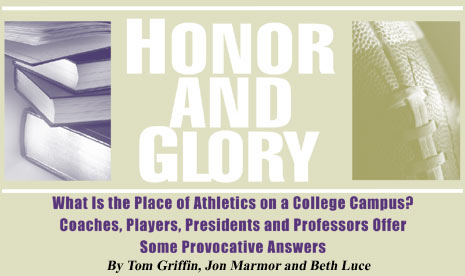
The first U.S. intercollegiate sporting event was a crew race between Harvard and Yale held August 3, 1852. Harvard won the two-mile race, but the team did it by adding some men who were not even enrolled in the college.
"The real world of college sports has always had major corruption," said Indiana University Professor Murray Sperber, author of four books on the conflicts between academics and athletics at U.S. colleges and universities.
"It's getting closer to professional sports all the time," Sperber added in a press interview promoting his latest book, Beer and Circuses: How Big-Time College Sports Is Crippling Undergraduate Education. "It's getting more difficult for athletes to get a meaningful education."
Sperber had to go to court to get Big Ten universities to open the books of their sports departments. What he found was that many programs are a drain on the academic resources of their schools. Out of 115 Division I programs in the NCAA, only 40 are not subsidized by taxpayer dollars or student fees. The UW is one of the 40 self-supporting programs.
In addition, he says, the impression that schools are raking in millions from TV revenues and merchandise royalties can backfire. "I think one of the problems with public support of American schools is that the public believes that these schools are making fortunes from college sports," he said in the interview.
While some colleges bask in the glow of a winning sports program, "that sword can swing back at you," he added. Prestigious universities across the nation have been stung by recent scandals and NCAA sanctions, including Michigan, Minnesota, Cal-Berkeley and UCLA. With the revelation of high stakes gambling on NCAA tournaments by former UW Football Coach Rick Neuheisel and recruiting infractions in Husky basketball, Washington's reputation is also being hurt.
To put the role of athletics in perspective, the staff of Columns contacted former coaches, players, presidents, faculty and alumni, asking a series of questions. Here is a summary of their responses.
Go To: Intro | William P. Geberding | Greg Lewis | Kate O'Neill
Marv Harshman | Trish Bostrom | Norman Rose
- Return to September 2003 Table of Contents